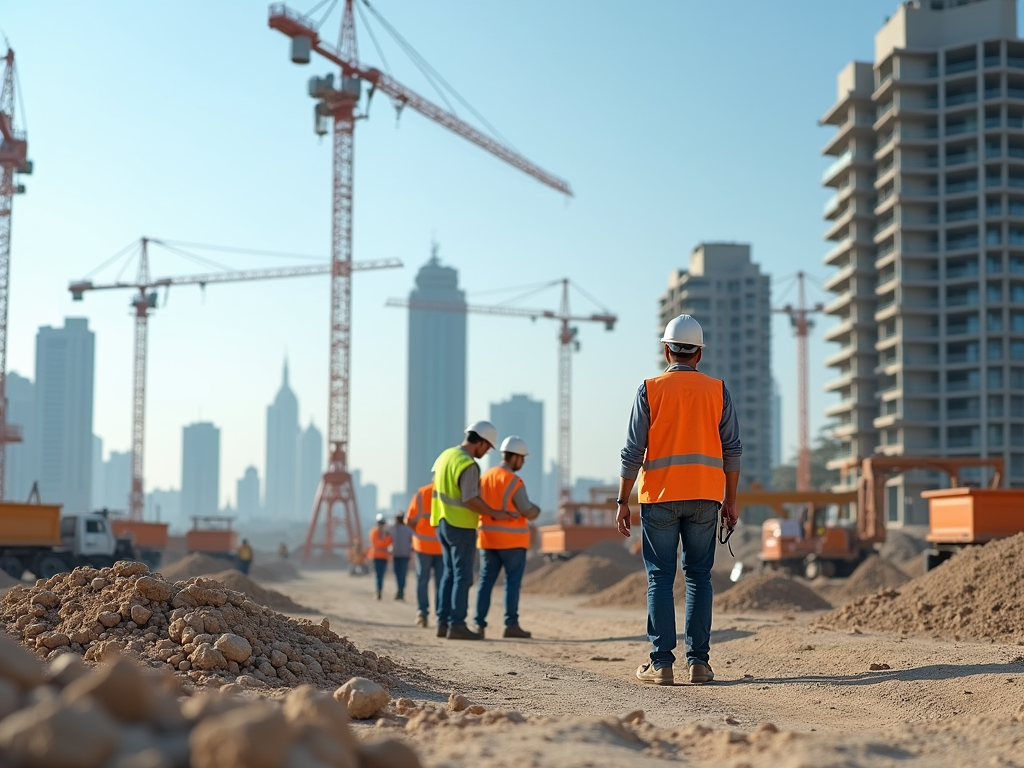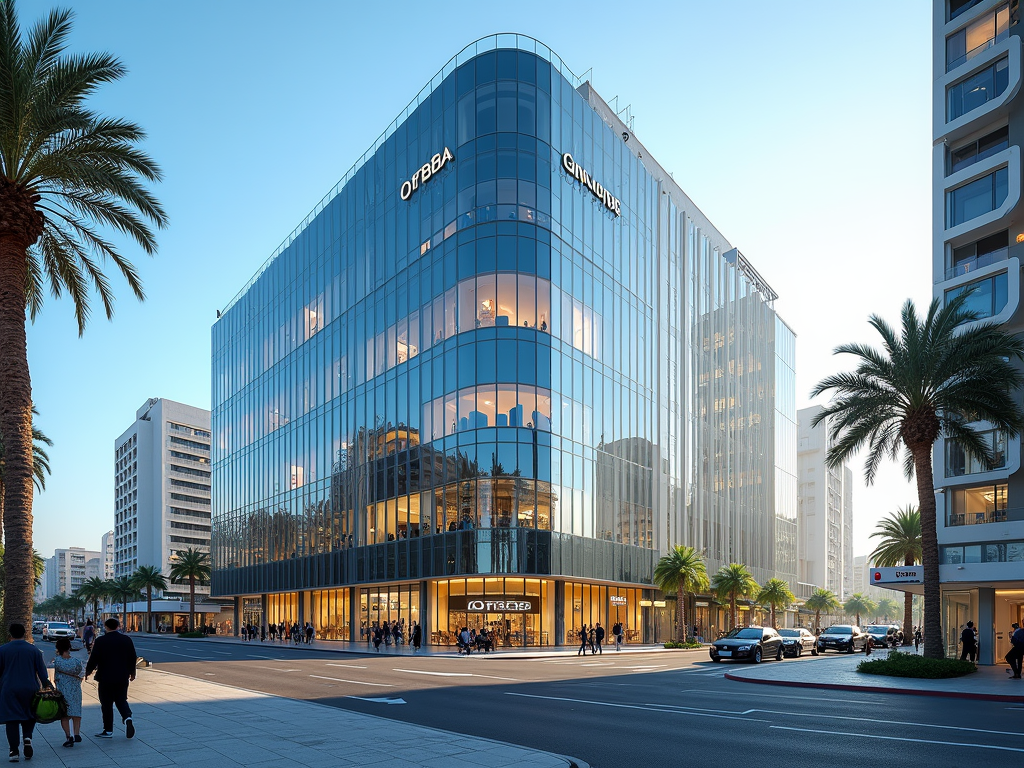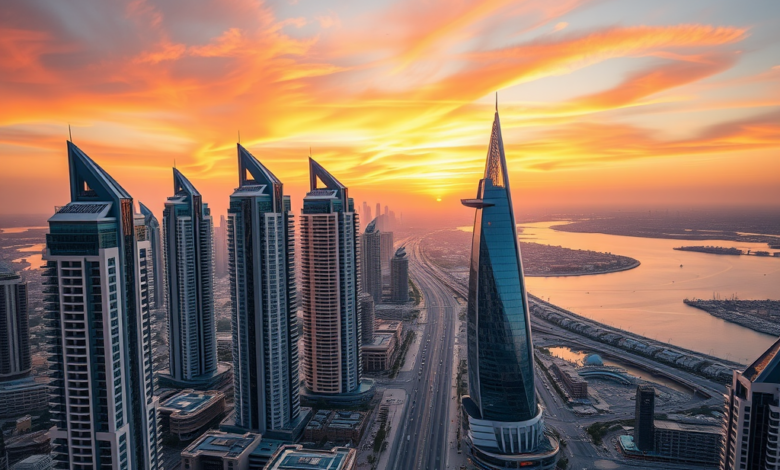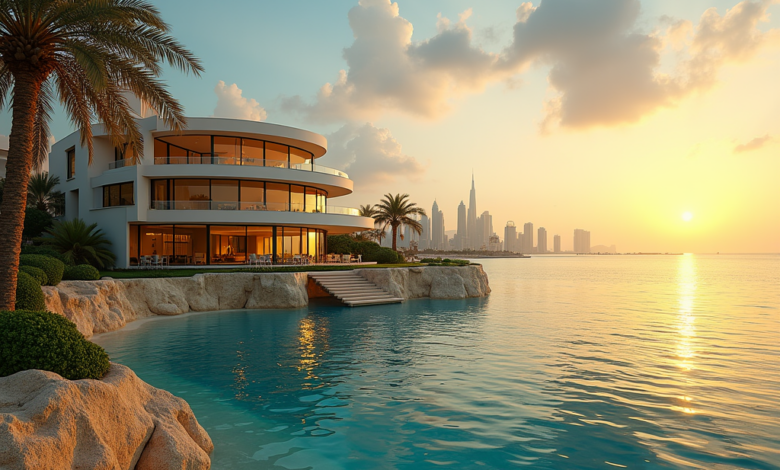Dubai’s commercial real estate market presents an array of opportunities and challenges, shaped by its dynamic economy and strategic location. As a global metropolis, Dubai attracts investors and businesses from around the world, providing a fertile ground for commercial properties. However, navigating this market requires an understanding of its unique landscape, influenced by regulations, economic fluctuations, and emerging trends. In this article, we will explore the opportunities and challenges within Dubai’s commercial real estate sector.
Opportunities in Dubai’s Commercial Real Estate Market

Dubai offers a wealth of opportunities for investors and businesses looking to establish a presence in the region. The city’s strategic location makes it a central hub for trade and commerce, with a constantly growing population and a thriving economy. Some key opportunities include:
- Strategic Location: Dubai serves as a bridge between East and West, making it a prime location for companies targeting both regions.
- Diverse Economy: The UAE’s economy is diversifying beyond oil, with investments in technology, tourism, and finance contributing to the growth of the commercial real estate market.
- Free Zones: Dubai’s various free zones, such as the Dubai Multi Commodities Centre (DMCC) and Dubai Silicon Oasis, offer incentives like 100% ownership and tax exemptions.
- Infrastructure Development: Continuous investments in infrastructure, including transport, utilities, and digital connectivity, enhance the appeal of commercial properties.
- Expo 2020 Legacy: The Expo 2020 showcased Dubai’s capabilities, leading to increased tourism and investments that create demand for commercial properties.
Challenges Facing the Commercial Real Estate Sector

While Dubai’s commercial real estate market is ripe with opportunities, it also poses several challenges that investors must navigate. Understanding these challenges is crucial for making informed decisions. Key challenges include:
- Market Saturation: The ongoing construction boom has led to an oversupply of commercial spaces, leading to price drops and increased competition.
- Economic Fluctuations: Although Dubai’s economy is diversifying, it remains sensitive to global economic changes, affecting investor confidence and spending.
- Regulatory Changes: The constantly evolving regulatory framework can complicate investment processes, requiring businesses to stay updated to remain compliant.
- High Operational Costs: Operating a business in Dubai often involves high rents and utility costs, which can deter potential investors.
- Cultural Differences: For foreign investors, understanding the local market dynamics and cultural nuances is essential to navigate successfully.
Investment trends play a significant role in shaping Dubai’s commercial real estate landscape. Here are some noteworthy trends affecting the market:
Firstly, there’s a significant shift towards sustainability and green building practices. As global awareness regarding climate change rises, real estate developers are increasingly focusing on eco-friendly designs that appeal to environmentally conscious tenants. Secondly, flexible workspaces are gaining popularity, particularly influenced by the remote work trend stemming from the COVID-19 pandemic. Businesses are opting for coworking spaces and shorter lease agreements, which are easier to adapt to fluctuating workforce needs.
Lastly, advancements in technology, such as proptech, are revolutionizing the real estate industry. From virtual property tours to AI-driven market analytics, these innovations streamline operations and enhance client experiences, making the commercial real estate sector more appealing to potential investors.
Conclusion
Dubai’s commercial real estate market presents a unique blend of opportunities and challenges. Investors must navigate a complex landscape shaped by economic trends, regulatory changes, and emerging market dynamics. With careful planning and strategic decisions, businesses can capitalize on the prospects offered in this vibrant city. Understanding the challenges helps mitigate risks, ensuring a successful venture into Dubai’s commercial real estate sector.
Frequently Asked Questions
1. What are the main advantages of investing in Dubai’s commercial real estate?
The main advantages include a strategic location, diverse economy, supportive free zones, continuous infrastructure development, and the lasting legacy of Expo 2020, which boosts demand.
2. What challenges should investors be aware of?
Investors should be cautious of market saturation, economic fluctuations, regulatory changes, high operational costs, and cultural differences that can complicate business operations.
3. How is technology impacting Dubai’s commercial real estate market?
Technology is revolutionizing the sector through proptech innovations, enhancing property management, improving tenant experiences, and providing better market insights through AI and data analytics.
4. Are there specific sectors within commercial real estate that are seeing more growth?
Yes, sectors such as logistics, e-commerce warehousing, and flexible workspaces are experiencing significant growth due to changing consumer behaviors and business needs.
5. What steps can investors take to minimize risks in this market?
Investors can minimize risks by conducting thorough market research, staying updated on regulations, diversifying their investments, and seeking local expertise to understand cultural nuances.





